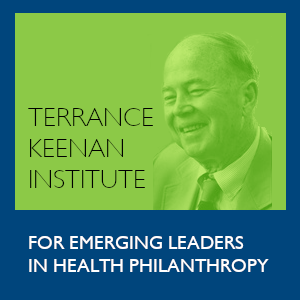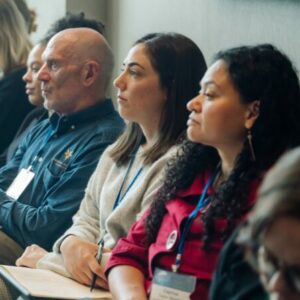The Final Reconciliation Package: Implementation of Key Provisions
On July 4, 2025, H.R. 1, the One Big Beautiful Bill Act, was signed into law. The implementation dates for key health care provisions in the law vary, with some taking effect immediately upon passage and others being implemented over several years. This resource details key dates for the implementation of the law’s most significant health care provisions.
Deadlines in Health-Related Executive Orders and Presidential Memoranda
This GIH policy resource details many of the health-related executive orders issued by the administration and includes a calendar of upcoming deadlines for when those orders are expected to be implemented.
Beyond the Exam Room: Impacting Health Outcomes Through Civic Engagement
August marks Civic Health Month, a time to showcase the link between voting and health and celebrate efforts that ensure every voter can support their community’s health at the ballot box. At the same time, the United States is grappling with a health care system ranked 37th globally despite consuming 17 percent of the country’s GDP. With 26 million Americans uninsured and 43 million underinsured, the gap in access to care continues to widen. This crisis will deepen as critical ACA subsidies expire at the end of 2025, potentially leaving 3.8 million more Americans without coverage, in addition to new federal cuts to Medicaid and changes to how coverage is accessed through the health insurance marketplace, which could result in as many as 20 million Americans losing their health insurance.
2024 Terrance Keenan Institute Fellows Named
GIH is delighted to announce the 2024 Terrance Keenan Institute for Emerging Leaders in Health Philanthropy class of fellows.
Help Shape Next Year’s Grantmakers In Health Annual Conference
Grantmakers In Health (GIH) is seeking volunteers to serve on our 2025 Annual Conference Proposal Review Committee. Committee member feedback is a critical way for GIH to ensure that the annual conference agenda includes high quality, engaging sessions that reflect the interests of the health philanthropy field.
Building Stronger Early Childhood Systems: Reflections from Western Montana
What happened when a regional health foundation team embarked on a road trip and drank 600 cups of coffee with their neighbors? They discovered that Western Montanans were tired of band-aid solutions and frustrated with interventions that always seemed to arrive too late. People wanted to focus on prevention to address problems at their roots. They hoped to see more collaboration between organizations and across sectors and emphasized that solutions should be locally born and cultivated, focusing especially on kids in their earliest years.
The Crucial Role of Philanthropy in Nurturing Equitable Local Journalism
In an era marked by profound societal divisions, the role of local media in fostering democratic health stands as a cornerstone of informed civic engagement. From critical issues like health care and housing to economic opportunity and climate impacts, local journalism is the bedrock upon which communities build their understanding and response. Yet, the field faces challenges beyond the well-documented financial crisis facing local newsrooms, encompassing deep-rooted inequities in newsroom composition and the narratives they convey.
Peterson Health Technology Institute: July 2024
Peterson Health Technology Institute (PHTI) recently released a report on virtual musculoskeletal solutions and care for adults with conditions such as low back, knee, hip, shoulder, and neck pain. The assessment outlines virtual, exercise-based physical therapy and recommendations for the health care system.








